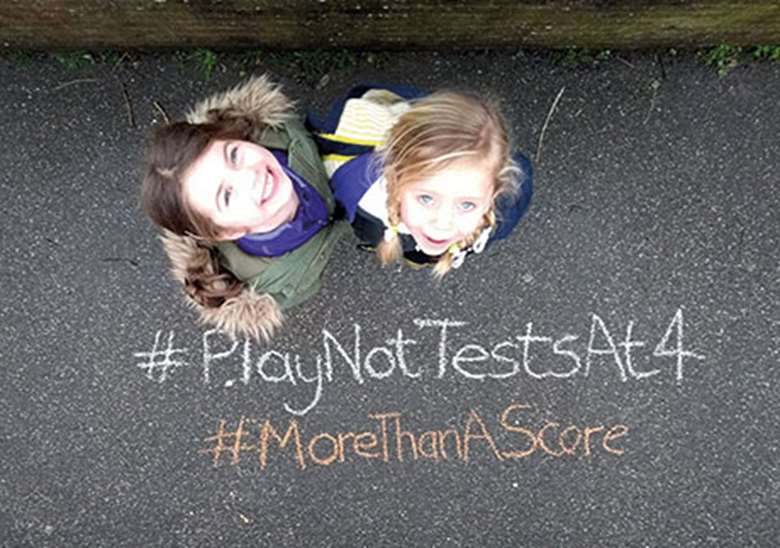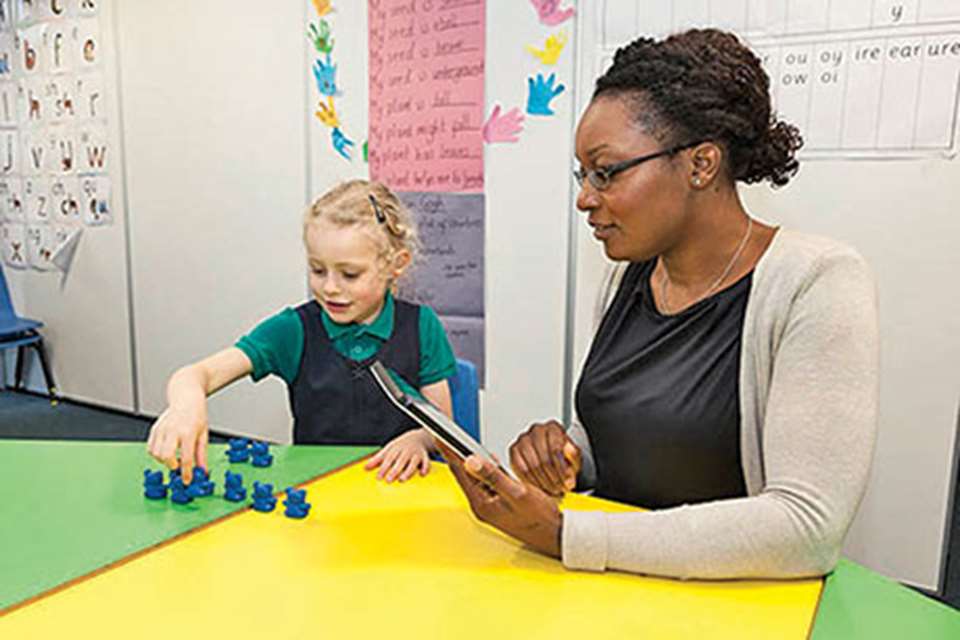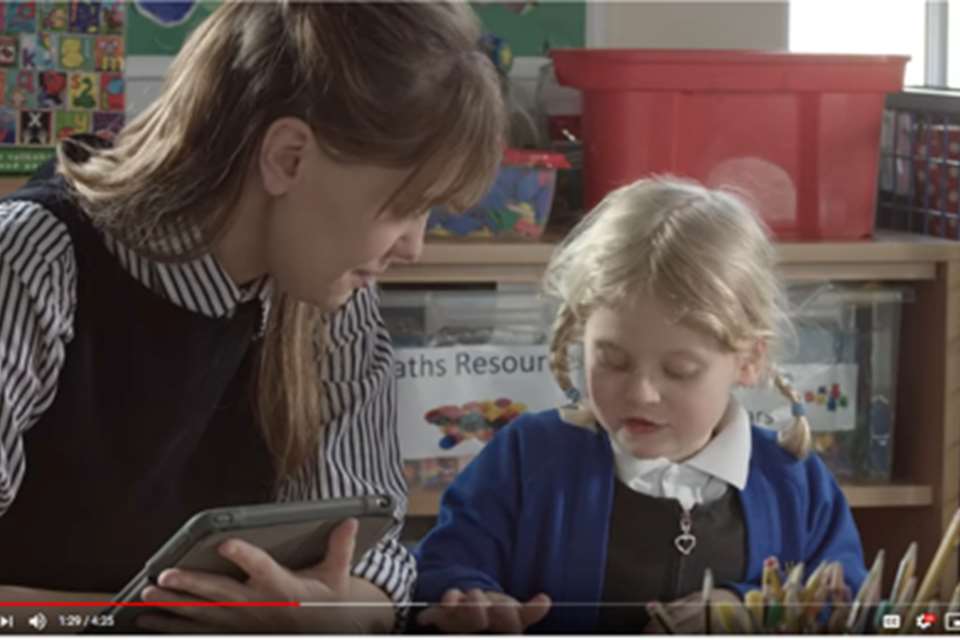Baseline pilot go-ahead sparks outcry
Friday, March 1, 2019
The move by the Department for Education (DfE) to press ahead with the Reception baseline and invite schools to take part in a trial of the assessment, starting in the autumn, has been met with frustration from the early years sector.

- Trial planned for September, with roll-out in 2020
- Assessment criticised by many as ineffective
The move by the Department for Education (DfE) to press ahead with the Reception baseline and invite schools to take part in a trial of the assessment, starting in the autumn, has been met with frustration from the early years sector.
As of last week, schools with Reception classes could sign up to take part in the national voluntary trial of the assessment, which will test four- and five-year-olds on their language, communication, literacy and early maths.
Taking place from September, the pilot will be run by the National Foundation for Educational Research (NFER), which was awarded the contract last April to design and deliver the widely criticised Baseline assessment. It comes ahead of a national roll-out in September 2020.
The More than a Score campaign group has expressed its anger at the DfE for continuing with the assessment, despite opposition from school leaders, teachers and experts.
Writing on behalf of More than a Score, member of TACTYC Nancy Stewart said, ‘It’s time for the Government to listen to parents, heads and education experts. They know children best and they know standardised assessment for four-year-olds makes no sense.’
Survey findings
New survey findings released by the group reveal that almost four in five (79 per cent) school leaders believe testing pupils in Reception is an inefficient way to measure future progress.
Just under three-quarters (74 per cent) think it is not possible to reliably test four-year-olds.
The YouGov poll of 230 senior primary school teachers in England was carried out on behalf of the campaign group between 15 January and 4 February.
More than 70 per cent said they thought the baseline assessment is an ‘unfair way’ to measure the future progress of schools.
Other findings included:
85 per cent of respondents think the assessment process will be unfair on children with special educational needs, those without English as a first language or with summer birthdays.
96 per cent said they don’t think they should be spending the first few weeks of term preparing Reception pupils for assessments.
Helen Longton-Howorth, a head teacher based in Brighton, said, ‘The proposals are unfair on teachers, parents and – most importantly – very young children at a critical time in their education. It’s time for the Government to start listening to education experts and call a halt to this fundamentally flawed programme.’
According to More than a Score, parents are also voicing their concerns about the introduction of Reception baseline assessment. A petition to the schools minister Nick Gibb has received more than 40,000 signatures. Meanwhile, chalk protests demanding ‘Play Not Tests at 4’ have begun appearing on pavements and in playgrounds across the country.
Sector reaction
Others in the sector also have concerns about the DfE’s decision to move forward with the Baseline assessment.
Jan Dubiel, national director of Early Excellence, said, ‘I’m disappointed the DfE are pursuing it, given all evidence against it.
‘It’s important to remember, however, that we do need to be accountable and an assessment on school entry is needed.’
He added, ‘However, this doesn’t impact upon anyone other than Reception teachers. The more it’s talked about outside Reception, the more we create mythology about assessment.’
Neil Leitch, chief executive of the Early Years Alliance, said, ‘It’s incredibly disappointing, though unfortunately not surprising, that the Government has chosen to push ahead with the roll-out of baseline testing despite widespread concerns from educators, parents and the wider early years and primary sectors.
‘Rather than looking to assess children across a broad range of areas of learning and development, these reductive, inconsistent and often unreliable tests instead take a narrow focus on easy-to-measure skills such as numeracy and literacy.
‘As Government has itself admitted, this policy is all about assessing the effectiveness of schools, rather than supporting children’s early learning and development. As a result, we have a system about to be introduced which is liable to place undue pressure on young children at the very start of their educational journeys, without any real benefit to them at all.’
He added, ‘We urge the Government to rethink the introduction of these tests and will continue to oppose this policy in partnership with our sector and union colleagues.’
The National Education Union (NEU) argued that the baseline assessment is a ‘waste of teachers’ time and public money’.
Joint general-secretary Kevin Courtney said, ‘Given the workload crisis and the uselessness of this test, many schools will not sign up to Mr Gibb’s pointless pilot, and the NEU will support them in that decision.’
AGAINST Baseline
 Beatrice Merrick, chief executive, Early Education
Beatrice Merrick, chief executive, Early Education
‘Baseline assessment has been introduced and scrapped twice before in England, not to mention similar criticisms being made of P1 testing in Scotland, yet ministers are still persisting with this flawed policy.
‘Government still hasn’t made a convincing case that these tests will produce valid data, so schools should think hard about whether participating in the pilots is good use of time and resource, or whether it will simply waste teacher time and distract from the important process of getting children settled into the Reception year. What head teacher will want to be held to account on the basis of dodgy data about children’s starting points?
‘Last time around, thousands of schools participated in the pilots only to find these were time-consuming and of no benefit to children or teachers. We hope they won’t make the same mistake again and will choose not to participate in piloting an inherently flawed assessment. Baseline assessment will never produce a sound basis for accountability, and it offers no benefits for children or teachers.’
FOR Baseline
 Nick Brook, deputy general-secretary, National Association of Head Teachers (NAHT)
Nick Brook, deputy general-secretary, National Association of Head Teachers (NAHT)
‘NAHT supports the concept of a Reception baseline. The progress that children make in primary school is a far better indicator of school effectiveness than attainment figures alone, which ignore the fact that children have very different starting points.
‘It makes little sense to take a baseline measure for progress midway through the primary years, as is the case now, effectively ignoring the incredible work and progress made in those critical first few years of school. Developing a reliable and workable baseline assessment, that does not hinder teachers and children in those important first few months of school, is fraught with difficulty. Get it right, however, with the associated removal of SATs at the end of Year 2, and we should finally start to see the reduction in the volume of high-stakes testing in primary that NAHT has long called for.
‘The ongoing support of school leaders for roll-out of the baseline will be dependent upon the evaluation of the pilot to ensure the Department for Education and Standards and Testing Agency have addressed our remaining concerns.’









